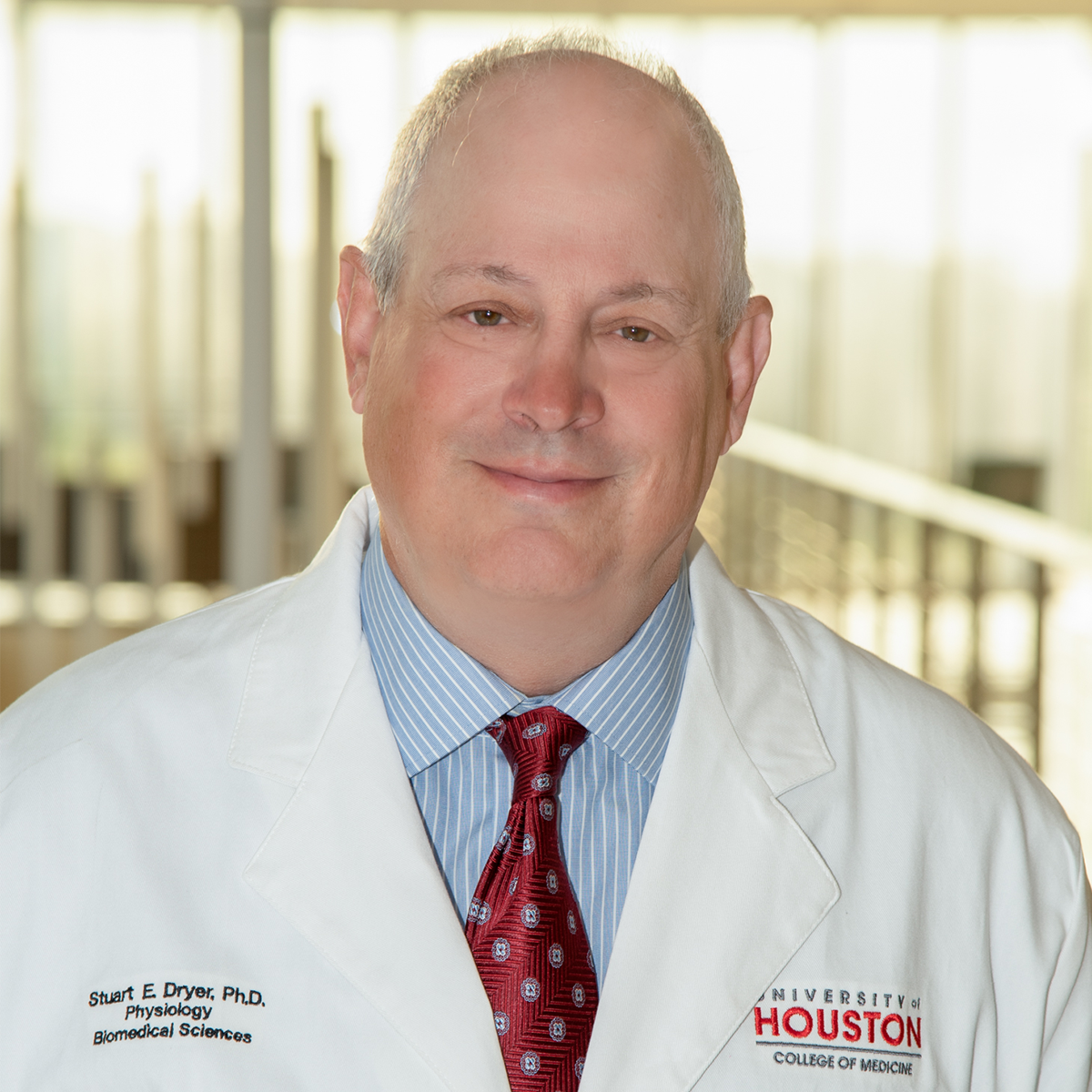Biography
Stuart E. Dryer, Ph.D., FASN and FAAAS

Stuart Dryer, Ph.D., is co-director of the renal course for the Tilman J. Fertitta Family College of Medicine. Dryer has been involved with the Fertitta Family College of Medicine from the early planning stages and will also contribute content on cellular physiology to the curriculum. He is also the John and Rebecca Moores Professor in the Department of Biology and Biochemistry and the Department of Biomedical Sciences at University of Houston. An accomplished researcher, Dryer’s work has appeared in Nature, Science and Proceedings of the National Academy of Sciences.
Dryer has been with the University of Houston since 1997, and previously served as chair of the Department of Biology and Biochemistry. Before beginning his research work on renal physiology, he spent many years carrying out research in molecular neuroscience. Dryer’s current research in the Department of Biology and Biochemistry focuses on the role of ion channels and receptors in the regulation of the glomerular filtration barrier and in the progression of disease states. His recent work has focused on TRPC6 channels and several of its interacting proteins, which include podocin, NADPH oxidases and other ion channels. In addition, Dryer has been studying renal NMDA receptors and their role in normal and abnormal physiology.
Dryer earned a bachelor’s in biochemistry from the University of Iowa and a Ph.D. in pharmacology from St. Louis University, before doing postdoctoral work at the University of Colorado. Before joining the University of Houston, he was a professor at Florida State University and a visiting associate professor at Harvard Medical School.
He was elected fellow of the American Association for the Advancement of Science in 2009 and fellow of the American Society of Nephrology in 2013. Dryer has published over 120 peer-reviewed articles and his work has been cited more than 6,000 times. His research has been supported by the National Institutes of Health since 1989.